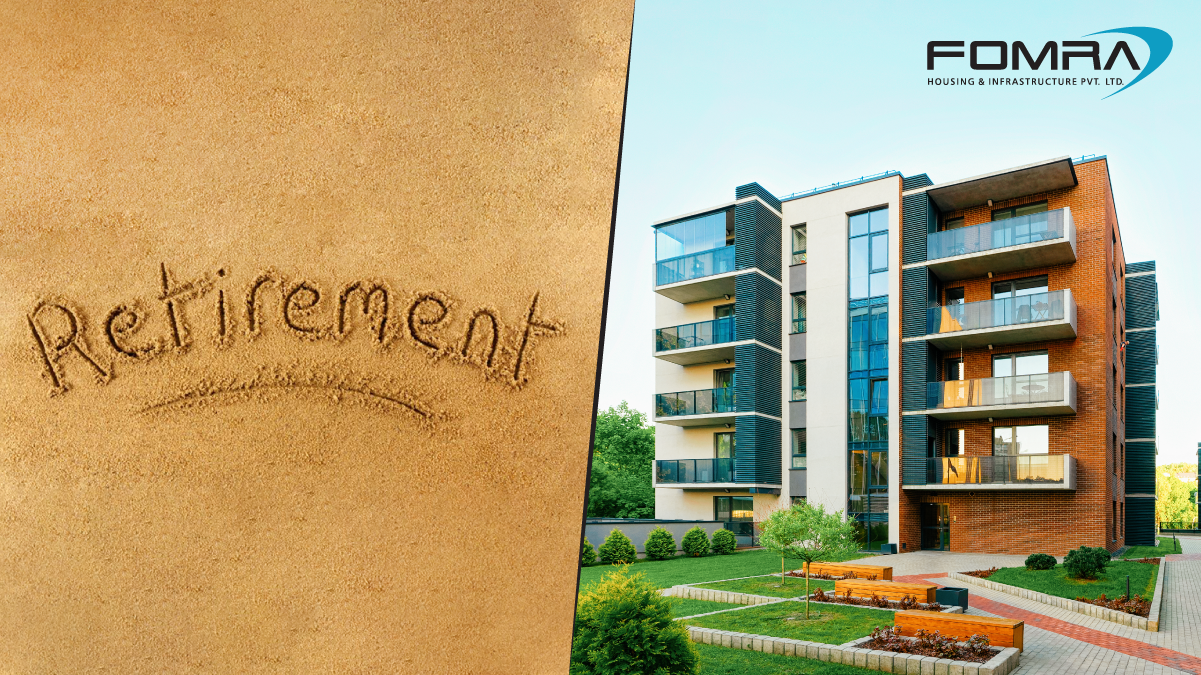Retirement is one of the most significant changes (and sometimes challenges) in life. Thus, it is imperative that an individual plan for it in the best way possible. Retirement planning goes beyond numbers; it’s more than just what someone does after retiring. In addition to having a safe reserve for contingencies, proper financial planning is also a must. Why? Because investing diligently in real estate property is a sound idea for leading a comfortable retired life.
Why is Real Estate a Smart Investment for Retirement?
Those who are blessed with long life will naturally wish to continue with the lifestyle they had before retirement. To achieve this and meet the financial and emotional changes that are bundled with retirement, planning is crucial. Making a list of viable real estate properties is one smart way of securing a comfortable lifestyle post-retirement.
Real estate proves to be an excellent investment if you go about it the proper way. Building wealth through an array of income-generating properties can be achieved by a systematic approach. The following are a few of the real estate investment strategies that help boost your retirement income:
- Rent out your additional properties
- Buy commercial property and lease out to businesses
- Buy property in upcoming residential areas and sell when at peak demand
Safe and Secure Retirement
Although real estate investment could be complicated, making plans carefully and prudently going ahead ensures several benefits. Buying your own home or office space puts you in charge as the landlord and helps avoid rent-related issues. By owning rental properties, you are assured a steady source of income – a very welcome factor in retired life. Now, the challenge is picking the right type of real estate investment that suits you personally and gels with your lifestyle.
Here are a few different types of real estate investment plans for a happy retired life:
#1. Rental Real Estate
One of the investments that prove to be secure, rental properties are a stable source of income for retirees. This form of real estate plan involves renting out the property that you own, and you get to enjoy the additional revenue stream through rental income. You need to be prepared to meet the maintenance requirements and occasional miscellaneous expenses. Planning for investing in rental properties involves a careful calculation of all potential costs over the period for which you plan to own and rent out the property.
Investment property has to be considered as a business. If you put in the time to take the necessary efforts, rental real estate gives excellent ROI. Value appreciation is another way in which the property owner achieves profit.

#2. Direct Ownership
Buying your own home and paying it off is one of the best retirement investment plans. There is a world of difference between investing in other real estate property and owning your home. Owning a home doesn’t guarantee that you actively make money. It will not increase the monthly cash flow generated from the property. Yet, it saves a lot of money and effort.
Paying off your home is an excellent long-term investment for retired life. Owning a home provides ample financial peace and a sense of achievement. You only need to pay taxes and insurance on your property. You are relieved from the burden of having to pay rent that keeps varying and looking for a new lease as and when required.

#3. Real Estate Investment Trusts (REITs)
An unconventional yet effective way of investing in real estate, REITs are mutual funds of the sector. You, as the investor, will be assisted by a team of professionals. This team manages the property, pays the expenses, collects the rent, and pays you the income generated from the property, after taking a management fee.
REITs may deal with any property, such as office buildings, residential buildings, or hotels. When you use REIT as part of a diversified portfolio, it proves to be one of the viable retirement investments.
It has to be noted that those who invest in REIT do not have direct control over the decisions regarding the property. This type of investment plan is suitable for retirees who do not want to get involved in hands-on investment activities. Your financial advisor will be able to guide you about REITs and the potential returns.

Also Read:- A Journey From Guindy to Porur in Search of Real Estate Investment
#4. House Flipping
Buying property low, making the necessary tweaks, and selling it for a profit – this quick profit-making strategy could be an effective way for those with a profit-booking bent of mind. In contrast to investing in rental properties and renting out for years to get the intended profits, house flipping is a much faster process. With a calculated investment, your property might fetch you a decent profit in mere months.
To strike a successful deal in this type of investment, you must be aware of the market scenario. It is better to ensure that you get a viable deal upfront before venturing into house flipping. On the flip side, you may face costlier renovations and updates than planned. You need to diligently account for such potential contingencies while going in for this type of retirement investment. Consulting real estate agents about the market potential in the neighbourhood where you plan on investing is a sound financial idea.

#5. Crowdfunding Income
The modern development in commercial activities has given birth to a newfound investment opportunity: crowdfunding. Crowdfunding is pooling of funds by a group of investors into a project. In this investment plan, retirees, as investors may buy shares in real estate ventures through crowdfunding platforms. Beginning with a nominal minimum investment, this type of investment plan doesn’t have any upper ceiling. You can pick your property from the list that an investment firm has vetted. The estimated capital gains and income will be disclosed on an average basis.
This type of retirement investment in real estate suits those who do not want to find an investment property themselves, yet wish to participate in the real estate investment arena. It enables you to buy a sizable share of individual projects, facilitating spreading your investment across different projects. This helps reduce risk, as well.
Investors will be earning money initially through rental income, which will culminate when the property gets sold. Initially rolled out to experienced investors only, crowdfunding has been extended to anyone planning retirement investment in real estate.

Why Retire With Real Estate?
Not everyone would have taken the effort to build a corpus fund for meeting their lifestyle requirements after retirement. There are several of us who would not have been blessed to save much as retirement approaches. If you are willing to manage the work related to real estate investments, it is an avenue that provides substantial income flow.
The only thing that needs to be accounted for here is that your property income covers all costs such as mortgage payments, taxes, and maintenance expenses. Real estate could prove to be an excellent retirement investment, provided you take time to acquire the right set of skills and know-how.
Smart Retirement Investment Tips
- Make efforts to establish financial independence when you approach retirement
- Monitor your income and expenses
- Keep track of potential rental income and the costs related to maintaining the property
- Calculate the right amount for meeting personal requirements such as bills, health, livelihood, and family
- Be prepared to reinvest in your present and future properties
- Choose properties that will be easy to rent out or sell
Conclusion
Real estate investment can be excellent for retirees, provided they take the time and effort to educate themselves on the matter. Patience and systematic working are imperative to make use of the properties to build a steady source of income during retirement.

